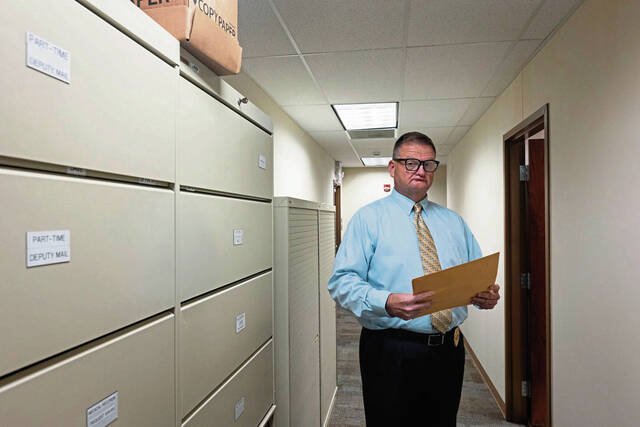https://triblive.com/opinion/editorial-coroners-obstruction-is-obituary-for-open-records/
Editorial: Coroners’ obstruction is obituary for open records

In a perfect world, no one would ever need to see a coroner’s report.
They would be the paper relics of a life ended. They would be filed away in the bureaucratic mausoleum that is a governmental file cabinet. They would rest in the peace of the millions of other documents dutifully recorded and yet unseen.
There would be no reason to hunt down the particulars of a murder, to research the impact of a disease or verify the accounts of law enforcement.
But the world is far from perfect, and the various reports generated by a coroner are the intersection of privacy and public records. That means they may not have the luxury of interment.
Like police reports, construction bids, court transcripts or government payroll, the black-and-white evidence of how someone died is a public record. It can be important for many reasons. Science. History. And yes, journalism, which can use it in the public interest to hold state and local governments to account on issues such as health, crime and corruption.
Pennsylvania’s coroner’s reports should be public records available by clearing the same minimal hurdles used to acquire any other document available in a courthouse. State law says they should be. Yet somehow, it’s a law many coroners shrug off because they don’t agree.
“They just can’t come in and request someone’s record without a reason,” Westmoreland County Coroner Timothy Carson said.
But legally, they can. If a record is open, it’s not open to interpretation.
It is admirable of elected officials to be so committed to the people they serve. However, they still must follow the law rather than allowing the state to become a grab bag of differing rules.
The courts agree. Multiple rulings have affirmed coroner reports as public, the most recent of which was in Allegheny County. The Commonwealth Court ruled Tuesday that reports from the death of Daniel A. Pastorek, 63, an inmate at the county jail, had to be provided to Brittany Hailer, director of the Pittsburgh Institute for Nonprofit Journalism. Hailer is investigating high rates of inmate deaths since 2020.
Allegheny County argued it shouldn’t be subject to the law because it is a second-class county. Philadelphia already doesn’t play by the same rules because of its size. Allegheny, like Bucks, Delaware, Lancaster and Montgomery, isn’t required to file reports with a prothonotary, but that shouldn’t mean the reports are any less open.
Commonwealth Court Judge Ellen Ceisler agreed, calling the county’s argument absurd.
It might seem like a problem of the dozens of county coroners. It also is a failure of the state, which creates laws regarding open records but does little to ensure they are followed. It may also be due to the short list of requirements for coroners — who are politically elected and often not forensic experts.
If these records are open, they must be treated so uniformly, without creating obstacle courses or issuing flat denials. To do otherwise is to write an obituary for Pennsylvania’s freedom of information.
Copyright ©2026— Trib Total Media, LLC (TribLIVE.com)
